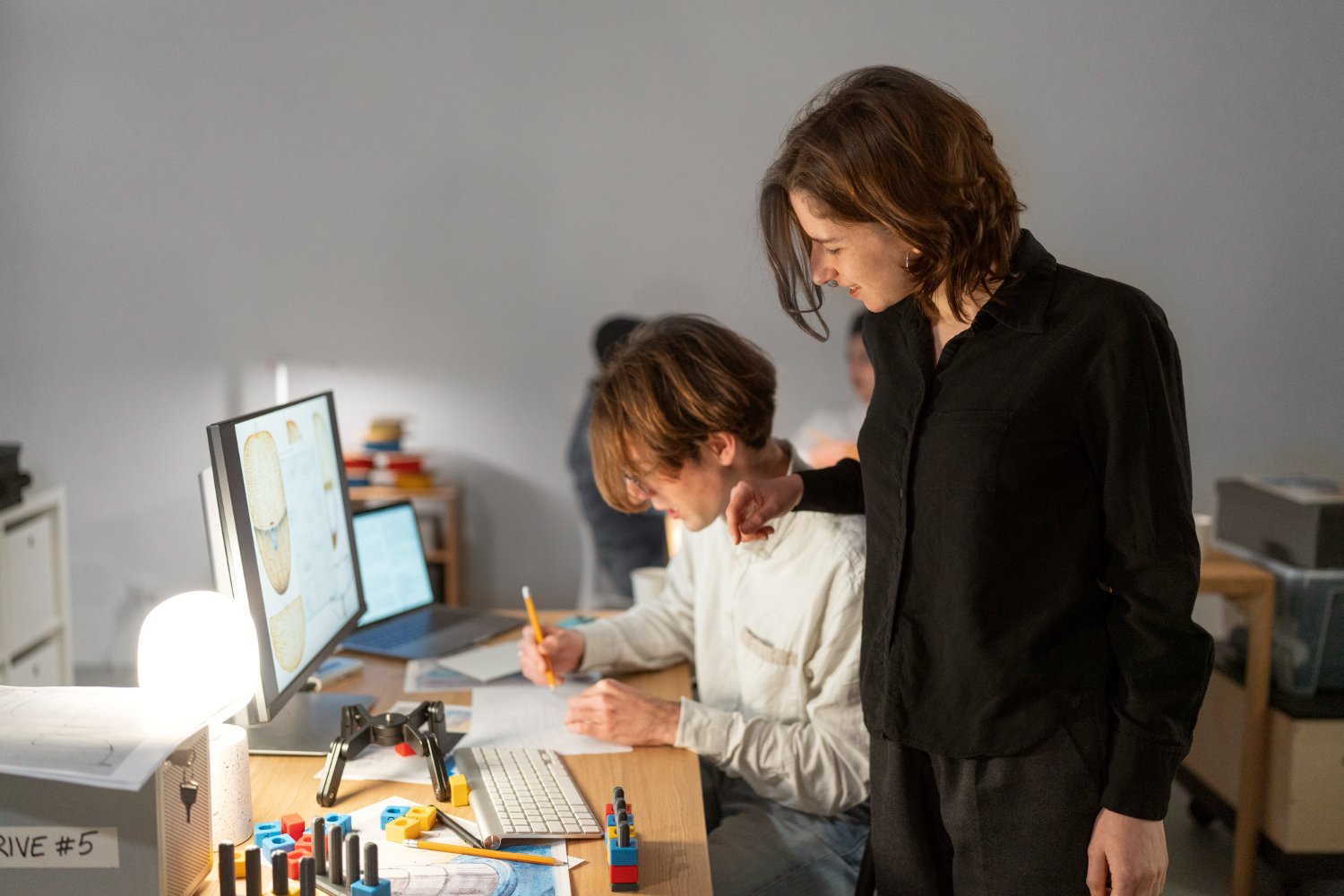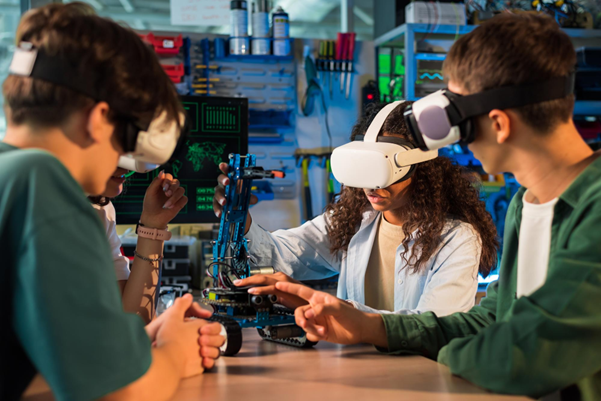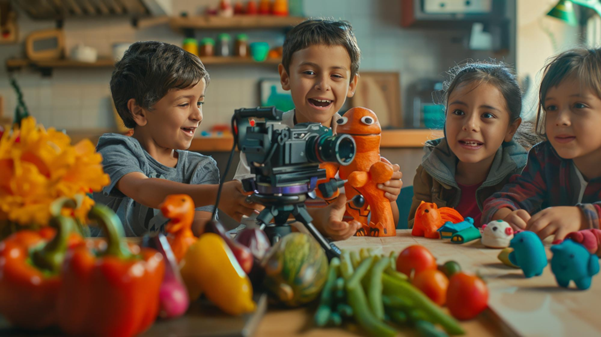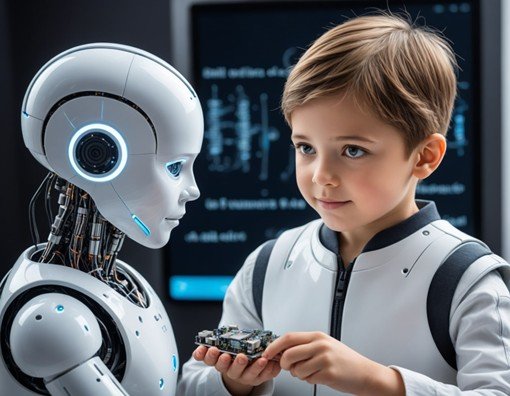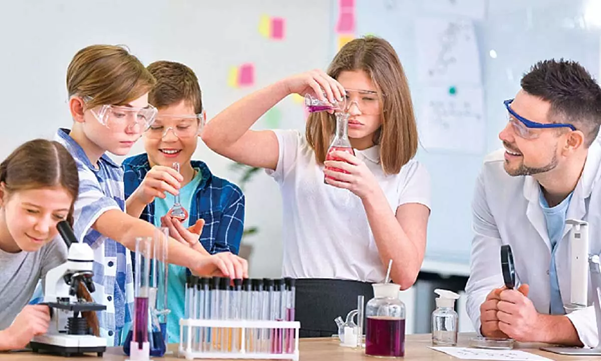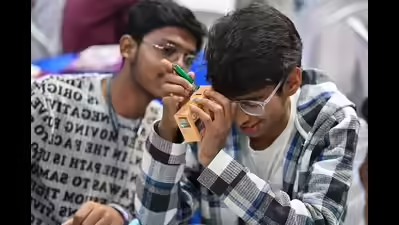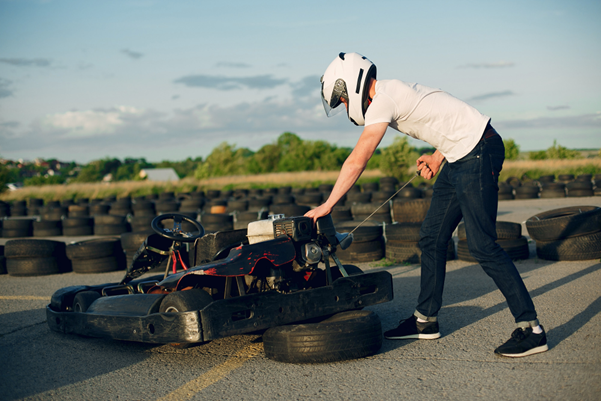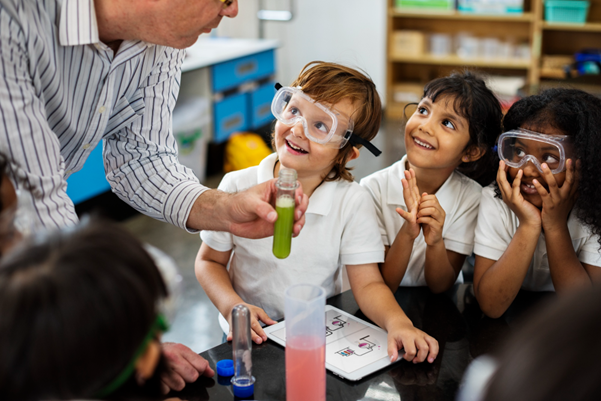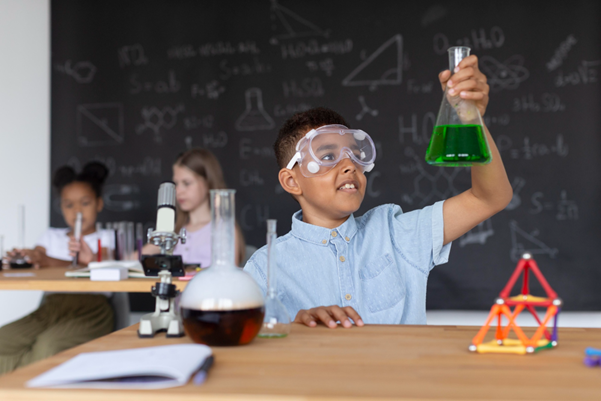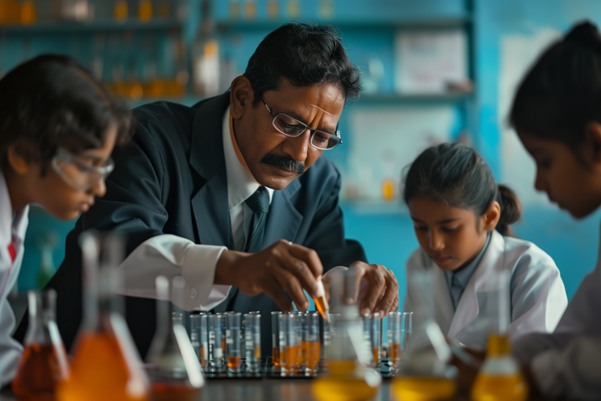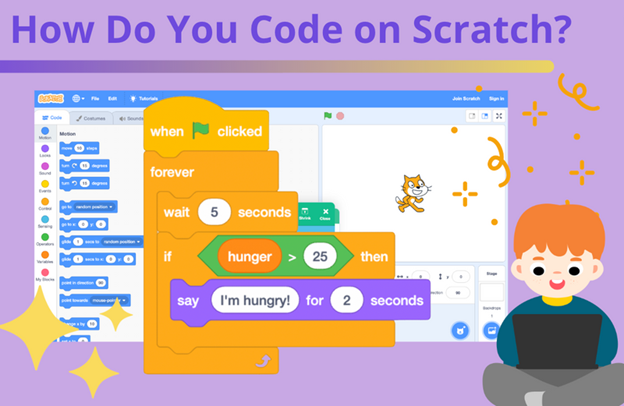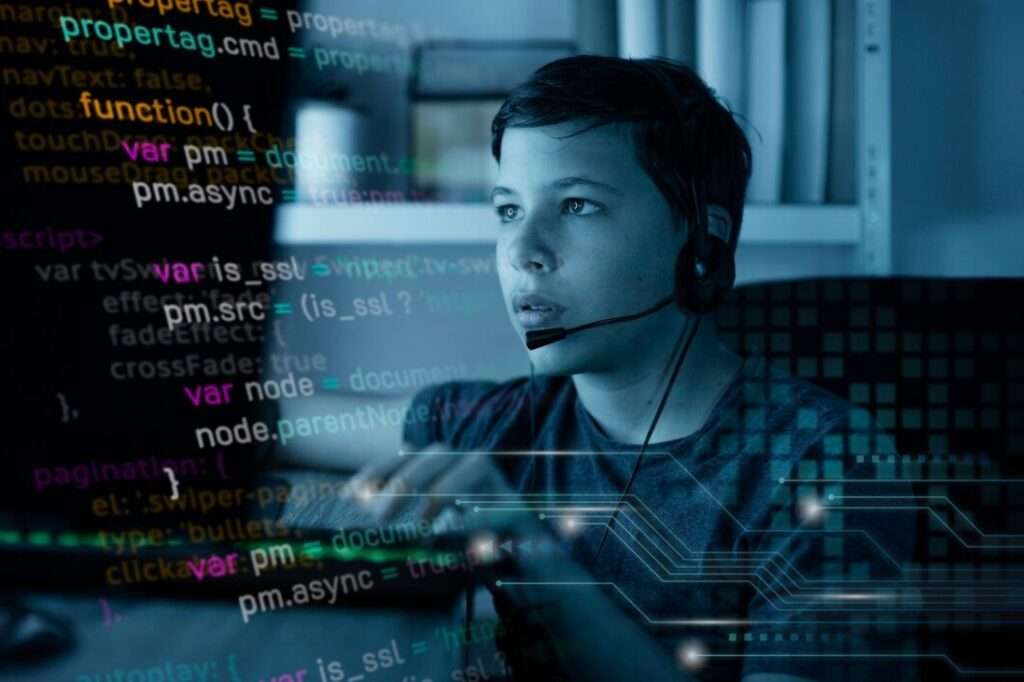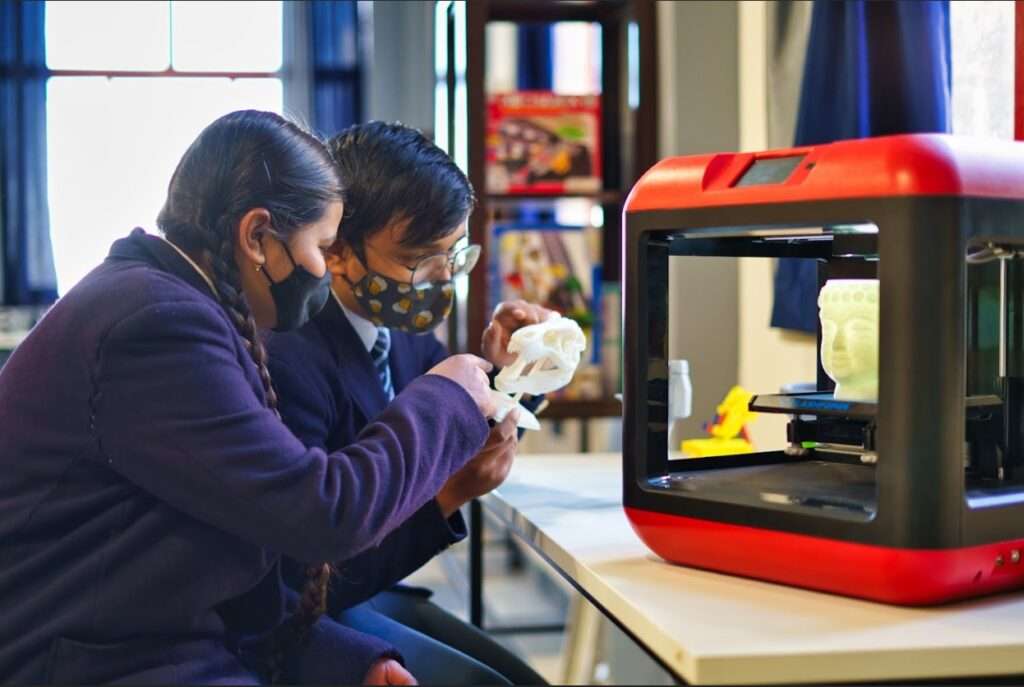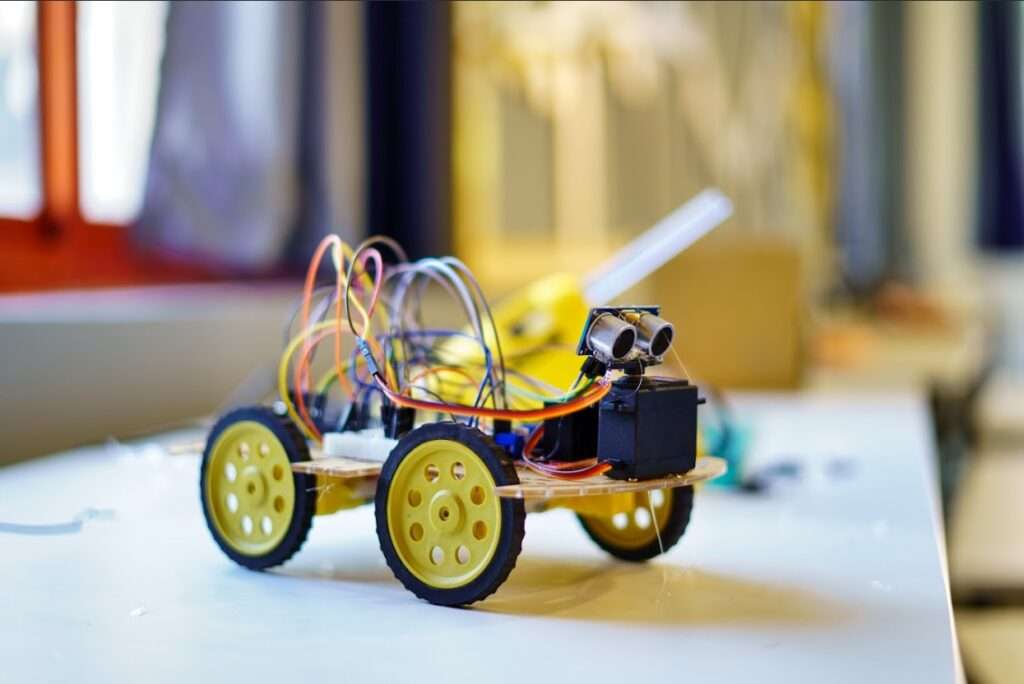The Hidden Crisis in Your School That’s Crushing Student Dreams
Maker Education: The Silent Epidemic Destroying Student Potential
A silent epidemic spreads through schools nationwide: learned helplessness that convinces students they’re incapable of success, innovation, or meaningful contribution. Traditional educational approaches inadvertently create dependency, compliance, and fear of failure that destroy natural curiosity and creative potential. At Makers’ Muse, we’ve witnessed firsthand how this crisis affects thousands of students across Indian schools.
Students internalise messages of incompetence through repeated experiences of passive consumption, external evaluation, and predetermined outcomes. They learn to wait for instructions, avoid risks, and seek approval rather than developing autonomous thinking and creative problem-solving abilities. This learned helplessness becomes a self-fulfilling prophecy that limits their future potential and career prospects.
The assessment culture contributes to learned helplessness by emphasising deficits rather than growth, comparing students to arbitrary standards rather than celebrating individual progress, and punishing mistakes rather than treating them as learning opportunities. Traditional classroom management systems reinforce dependency by requiring permission for basic needs, dictating every activity, and discouraging student initiative. Students learn compliance rather than self-regulation, following directions rather than critical thinking.

How Traditional Education Creates Dependency
The subject isolation typical in secondary schools fragments learning into meaningless compartments that students cannot connect to authentic purposes or personal interests. Knowledge becomes abstract information to memorise rather than tools for solving problems and creating value. This compartmentalised approach fails to prepare students for real-world challenges that require interdisciplinary thinking and creative solutions.
Traditional teaching methods inadvertently communicate to students that they are passive recipients of knowledge rather than active creators and problem-solvers. When students constantly wait for teacher direction, follow predetermined steps, and focus primarily on getting “right” answers, they lose confidence in their ability to think independently and creatively.
The Maker Education Solution
Maker education provides a powerful antidote to learned helplessness by empowering students to identify problems, design solutions, and create tangible outcomes through their own efforts. Success comes from personal initiative rather than external validation. This approach fundamentally transforms the learning experience from passive consumption to active creation.
The problem-based learning approach inherent in maker projects encourages students to ask questions, explore possibilities, and pursue personal interests. They become active investigators rather than passive recipients of predetermined information. Through our comprehensive STEM education programs, students develop the confidence to tackle complex challenges and create innovative solutions.
Authentic assessment occurs naturally through project outcomes, peer feedback, and self-reflection rather than external judgment. Students evaluate their own progress, set personal goals, and take responsibility for learning rather than waiting for grades to define their worth. This shift from external to internal motivation creates lasting engagement and lifelong learning habits.
Building Collaborative Learning Environments
The collaborative environment in maker spaces distributes authority among participants rather than centralising control with a single instructor. Students become teachers and learners simultaneously, developing leadership skills and mutual respect. This peer-to-peer learning model builds communication skills and emotional intelligence that traditional classrooms often overlook.
Real-world connections provide authentic purposes that motivate sustained effort and creative problem-solving. When students address community challenges, design helpful products, or contribute to local organisations, their work has a genuine impact beyond academic requirements. Through our innovation projects, students see the direct correlation between their learning and meaningful contributions to society.
Makers’ Muse workshops inspire kids with hands-on STEM activities like robotics, coding, and 3D design, demonstrating how authentic engagement occurs when students take ownership of meaningful projects that showcase their capabilities.

Learning from Failure: The Growth Mindset Approach
The iterative design process teaches students that failure is information rather than judgment. Prototypes that don’t work provide data for improvements rather than evidence of inadequacy. This growth mindset supports resilience and persistence – essential qualities for success in any field. Our design thinking curriculum explicitly teaches students how to embrace failure as a learning opportunity.
Learn More: Atl Lab Success
Cross-curricular integration demonstrates how knowledge areas connect to solve authentic problems. Students understand mathematics through engineering calculations, science through materials research, and communication through project documentation. Learning becomes coherent rather than fragmented, helping students see the interconnected nature of knowledge and skills.
Technology as an Empowerment Tool
Technology becomes an empowerment tool rather than an entertainment device when students use it to research, design, create, and communicate original ideas. They develop digital literacy through authentic applications rather than isolated skill instruction. Our technology integration programs ensure that students use technology purposefully to enhance their creative and problem-solving capabilities.
The documentation and reflection required in maker projects build metacognitive awareness that supports self-directed learning. Students understand their own learning processes, identify effective strategies, and take responsibility for continued growth. This self-awareness becomes invaluable as they transition to higher education and career challenges.
Fostering Creative Confidence
Creative confidence emerges when students pursue original ideas without fear of judgment. The maker environment celebrates innovation, experimentation, and unique perspectives rather than conformity to predetermined standards. Through our creativity workshops, students learn that their unique perspectives and ideas have value and can contribute to solving real-world problems.
Community connections provide authentic audiences for student work and meaningful feedback from professional practitioners. Students understand how their developing skills connect to career opportunities and community contributions. Our mentorship programs connect students with industry professionals who provide guidance and a real-world perspective on their projects.
Supporting Teacher Transformation
Professional development helps teachers transition from information deliverers to learning facilitators who support student initiative rather than controlling every experience. This shift requires cultural changes that administrative leadership must champion. We provide comprehensive training and ongoing support to help educators embrace facilitative teaching approaches.
The evidence supporting maker education continues to mount through research studies, program evaluations, and longitudinal outcomes that demonstrate improved engagement, achievement, and career preparation. Our research and evaluation team continuously documents outcomes to ensure our programs deliver measurable results for students and schools.
Creating Cultural Change in Schools
Schools implementing comprehensive maker programs report dramatic cultural shifts toward student empowerment, creative problem-solving, and collaborative innovation. These changes create positive feedback loops that attract families seeking excellent educational experiences. The transformation doesn’t happen overnight but requires sustained commitment to cultural change that prioritises student agency over administrative convenience.
Leadership must champion approaches that sometimes feel chaotic but produce authentic learning. Teacher buy-in develops gradually as educators witness student transformation and rediscover joy in facilitating learning rather than controlling behaviour. This professional renewal creates positive energy that spreads throughout school communities.
Parent support strengthens when families observe increased engagement, improved skills, and renewed enthusiasm for learning. These visible changes build stakeholder confidence in innovative approaches that may initially seem unfamiliar. Our parent engagement programs help families understand and support maker education approaches at home.
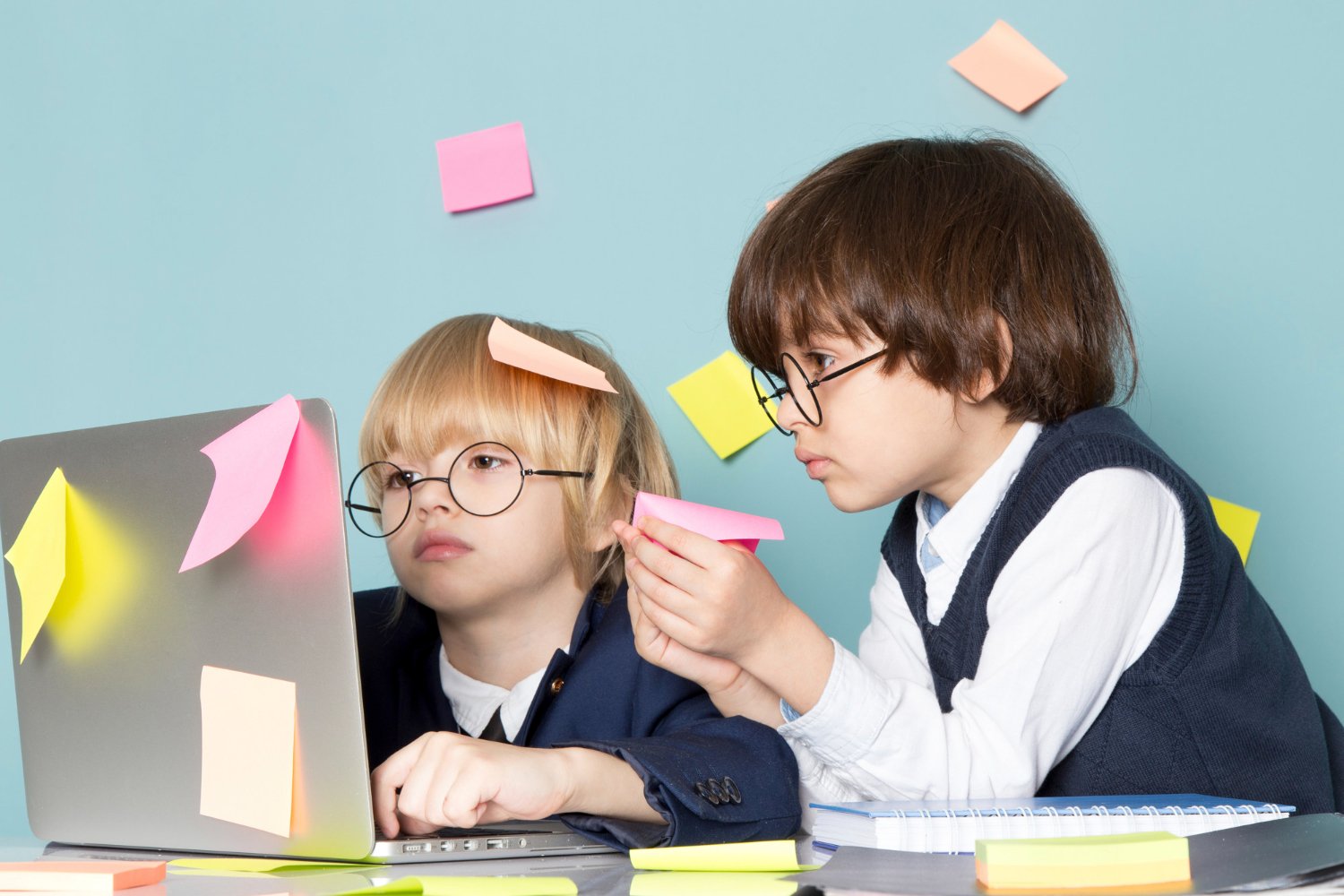
The Urgent Call to Action
Don’t let another generation of students leave school believing they’re incapable of meaningful contribution. Maker education provides proven approaches for rebuilding confidence, creativity, and competence. The cost of inaction is measured not just in individual student potential lost, but in the innovation capacity we fail to develop for our nation’s future.
The transformation begins with recognising that traditional approaches, while well-intentioned, may inadvertently limit student potential. By embracing maker education principles, schools can create environments where students develop confidence, creativity, and real-world problem-solving skills that prepare them for success in a rapidly changing world.
Transform Your School Culture Today
Ready to address the hidden crisis in your school and unlock your students’ potential? Contact Makers’ Muse to explore how maker education can transform school culture and restore student agency in learning processes while building authentic capabilities.
Discover research evidence supporting maker education outcomes at our professional development blog.
Please schedule a consultation | Download our course guide | View success stories

